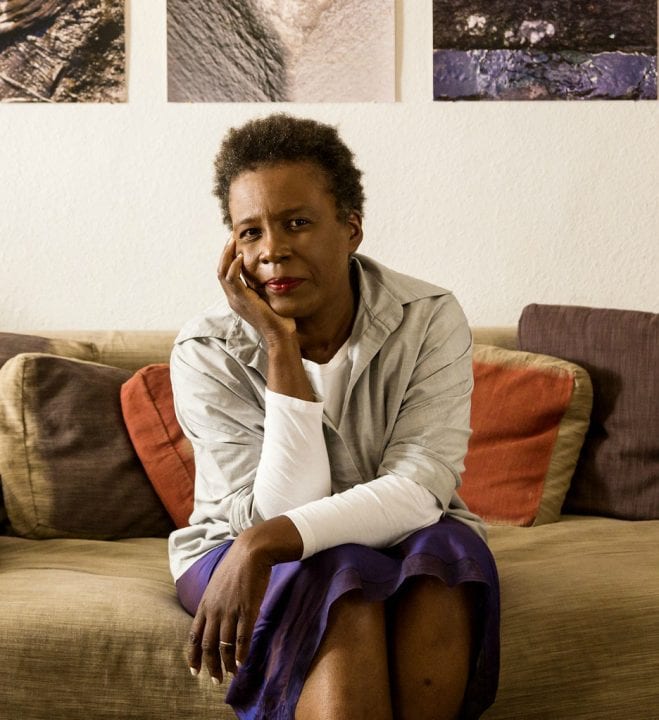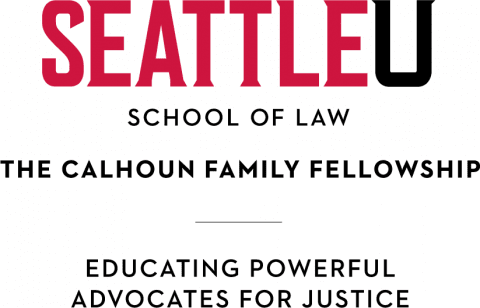Author, playwright, poet, and multi-media artist Claudia Rankine is the author of Citizen: An American Lyric. Her new book, Just Us: An American Conversation, is described by Kirkus Reviews as a “genre-defying work, [that] combines poetry, essay, visuals, scholarship, analysis, invective, and argument into a passionate and persuasive case about many of the complex mechanics of race in this country.” Rankine will appear in conversation with poet and SAL speaker Douglas Kearney.
All tickets (except Student/25 & Under and complimentary tickets) include a copy of Rankine’s latest book, Just Us. Books will be shipped by our bookseller, Third Place Books, a week after the event.
Just Us: An American Conversation (September 2020) builds off and incorporates a version of Rankine’s article for the New York Times, in which she struck up conversations with men in airports and on planes about their white male privilege. That article amassed thousands of comments, inspired hundreds of emails and letters, and has since been adapted for the stage.
Just Us is an investigation into what might happen if we rejected politesse and stuffy rules of etiquette in favor of risky, meaningful human connection. The encounters here are Rankine’s effort to collapse the false comforts of liminal and private spaces—the theater, the dinner party, the voting booth. Giving space to the voices and rebuttals of others, these conversations touch on topics as rangy as the political currency of blondness, the 2016 election, and inevitable fissures between longtime friends. Sometimes tender and frequently uncomfortable, these fragments and confrontations contain all the humor, suffering, embarrassment, and joy inherent to human coexistence.
Rankine’s bestselling book, Citizen: An American Lyric (Graywolf, 2014), uses poetry, essay, cultural criticism, and visual images, to explore what it means to be an American citizen in a “post-racial” society. A defining text for our time, Citizen was the winner of the National Book Critics Circle Award for Poetry (it was also a finalist in the criticism category, making it the first book in the award’s history to be a double nominee), the NAACP Image Award, the PEN Open Book Award, and the LA Times Book Award for poetry.
Citizen was a finalist for the 2014 National Book Award, and was selected as an NPR Best Book of 2014, which stated: “This collection examines everyday encounters with racism in the second person, forcing the reader—regardless of identity—to engage a narrative haunted by the deaths of Michael Brown, Trayvon Martin, and Renisha McBride.” Citizen also holds the distinction of being the only poetry book to be a New York Times bestseller in the nonfiction category.
In all of her work, whether writing about intimacy or alienation, Rankine’s voice is one of unrelenting candor, and her poetry is some of the most innovative and thoughtful work to emerge in recent years. Her work often crosses genres as it tracks wild and precise movements of mind.
In the words of the Judges Citation for the Jackson Prize: “The moral vision of Claudia Rankine’s poetry is astounding. In a body of work that pushes the boundaries of the contemporary lyric, Rankine has managed to make space for meditation and vigorous debate upon some of the most relevant and troubling social themes of the 20th and 21st centuries… These poems do the work of art of the highest order—teaching, chastening, changing, astounding, and humanizing the reader.”
Her other poetry collections are Don’t Let Me Be Lonely (2008); the award-winning Nothing in Nature is Private (1994); The End of the Alphabet (1998); and Plot (2001), wherein she welds the cerebral and the spiritual, the sensual and the grotesque.
Don’t Let Me Be Lonely—a multi-genre project that blends poetry, essays, and image—is an experimental and deeply personal exploration of the condition of fragmented selfhood in contemporary America. Rankine is also the author of the play, Provenance of Beauty: A South Bronx Travelogue, which is performed on a bus ride through the Bronx. The New York Times calls it an “engrossing urban adventure, which does not conform to the standard formula for theater but does make the bustle outside the bus throb with history, mystery and meaning, as the best live performances do.”
Rankine co-edited the anthology American Women Poets in the 21st Century: Where Lyric Meets Language, and her work is included in several anthologies, including Great American Prose Poems: From Poe to the Present, Best American Poetry 2001, Giant Step: African American Writing at the Crossroads of the Century, and The Garden Thrives: Twentieth Century African-American Poetry.
Rankine is the playwright for The White Card, a meticulously crafted story, which raises uncomfortable questions about what is — and who are — on display. Exploring contemporary headlines and cultural touchstones, Claudia Rankine’s The White Card unpacks the insidious ways in which racism manifests itself in everyday situations and questions how our society can can progress if whiteness stays invisible. Rankine also co-produces a video series, “The Situation,” alongside John Lucas, and is the founder of the Open Letter Project: Race and the Creative Imagination. She lives in New Haven, CT and teaches at Yale University as the Frederick Iseman Professor of Poetry.
Douglas Kearney, our moderator for the evening and a 2020/21 SAL Poetry Series speaker, is a poet, performer, and librettist whose six books bridge thematic concerns such as politics, African American culture, the Trickster figure, and contemporary music.
Kearney’s most recent work, Buck Studies (Fence Books, 2016), was awarded the CLMP Firecracker Award for Poetry, the Theodore Roethke Memorial Poetry Award, and the silver medal for the California Book Award in Poetry. BOMB says Buck Studies “remaps the 20th century in a project that is both lyrical and epic, personal and historical.” Kearney describes the non-traditional layout of his poems as “performative typography.” On the relationship between his poetry and politics, he notes: “For me, the political is a part of how I see the world. My art making doesn’t begin without realizing who I am and what it means for me to be writing a poem and not doing something else.” Read more.

